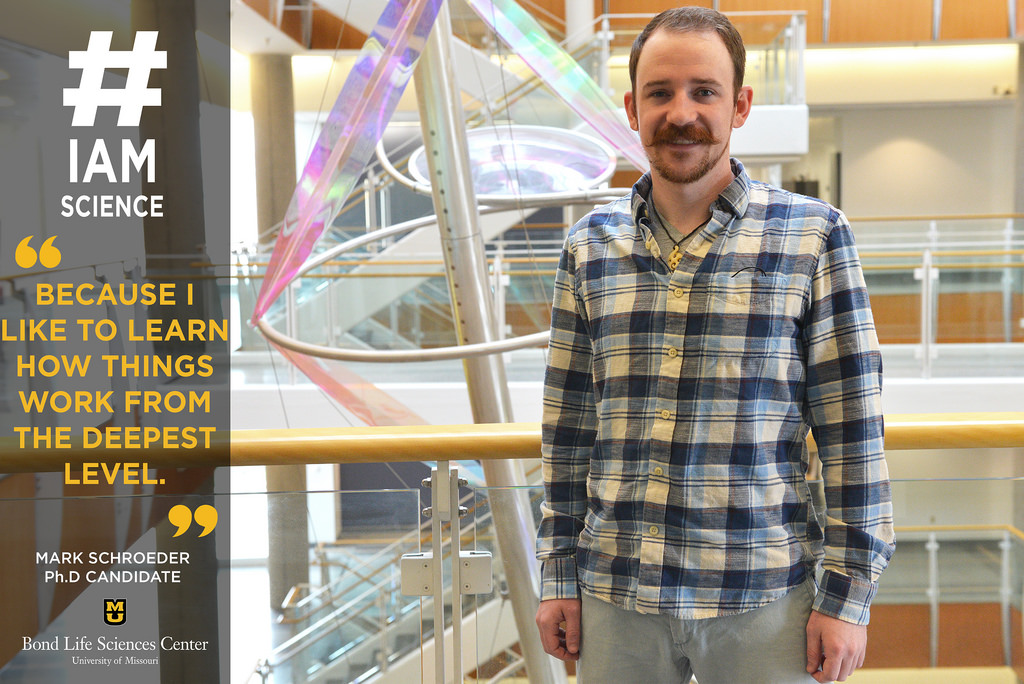Published on

Mark Schroeder, a Ph.D. candidate, works in Lloyd Sumner’s lab in Bond LSC. | photo by Allison Scott, Bond LSC
“#IAmScience because I like to learn how things work from the deepest level.”
For most people, a television breaking or a computer shutting down is annoying at best. It means they’ll have to embark on the often drawn out process of choosing a newer, more expensive version to purchase.
Fortunately, Mark Schroeder isn’t most people.
“If I have something that breaks, I’ll take it apart just to see if I can put it back together,” Schroeder said. “I had a broken TV and took all the screws out to see what was in it. I enjoy it because you’d be surprised at how simple some things are.”
That innate curiosity is what guided him toward a career in science. As a graduate student in biochemistry, Schroeder now works in the Lloyd Sumner Lab in Bond LSC where dives deeper into how things work.
Specifically, the lab has two main research interests: plant natural products and metabolomics. They use a model legume plant, Medicago truncatula, because it is rich in natural products.
“I currently work on the metabolomics instrumentation side,” Schroeder said. “The goal of metabolomics is to identify as many small molecules as possible in a biological sample.”
Once as they identify the small molecules, Schroeder and the rest of his lab can do comparisons between samples, such as disease tolerant and more susceptible plants.
“We try to understand the profile and compare samples because then we can get a signature on the small molecules,” Schroeder said. “My current job is developing a reference library for the small molecules so they can be quickly compared in a metabolomics setting.”
This means they can investigate two different samples and determine exactly what is different, an insight that might lead to agricultural or medical applications.
“Our lab is big picture because our methods are trying to collect as much information as possible,” Schroeder said. “We can, however, focus what we’re doing to target specific compounds or compound classes like lipids or flavonoids.”
To do their work, they use cutting-edge technology. While highly useful, it can require some troubleshooting.
“We encounter some unforeseen challenges, but we do our own maintenance on the instruments,” Schroeder said. “That helps us troubleshoot more quickly because we would otherwise always be calling for help.”
And Schroeder doesn’t mind being in the lab at all. In fact, it was something he’s always wanted to do.
“This was the goal all along — doing things hands-on,” Schroeder said. “People who invent incredible things typically aren’t starting with that as their primary job. I tried to find how I could turn my interests into a career, and I feel like I’ve done that here.”